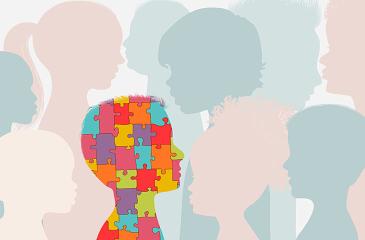Where Clinical Care and Research Collide: Autism & Neurodevelopment Clinic
About Our Autism & Neurodevelopment Clinic
The Autism & Neurodevelopment Clinic at MIDB offers best-practice diagnostic evaluations, evidence-based therapy programming, consultation with other MIDB specialists, and care coordination. While our clinic excels in connecting our clinical care and research efforts in many ways, I'll highlight our treatment programming.
Our treatment programming in the Autism & Neurodevelopment Clinic is led by myself and Dr. Chimei Lee. We provide group therapeutic services to children, adolescents, and young adults with autism and related neurodevelopmental conditions—such as anxiety, ADHD, and genetic conditions— and their families.
Who We Serve
Participants generally range between 8 and 30 years of age. Our core programs include evidence-based programs such as PEERS (Program for the Education and Enrichment of Relational Skills), Facing Your Fears, and Transitioning Together. These programs focus on social relationships, anxiety management, and preparing for the transition to adulthood.
How our Autism & Neurodevelopment Clinic's Treatment Team Intersects with MIDB's Research, Education, and Advocacy
Dr. Lee and I are conducting clinical research related to treatment outcomes for the clinical programming we run. We are also conducting research to expand upon transition programming to help prepare autistic youth for employment.
I'm also excited about many of the collaborative projects I'm involved with that focus on developing, adapting, and implementing programs for individuals with neurodevelopmental conditions. For example, I'm collaborating with other clinician researchers within Pediatric Neuropsychology to explore social functioning and the implementation of PEERS in children with rare diseases, in Developmental Behavioral Pediatrics to develop a parent coaching program for families of children with ADHD, in Psychiatry to examine the implementation of PEERS across community settings, with researchers from CEHD and Psychiatry to further develop a community-based mentoring program for autistic youth and adults (Autism Mentorship Program), and with researchers at UW-Madison to further develop psychoeducation programs for families of transition-age autistic youth and young adults.
Self-advocacy goals are embedded within our programming and we are also supporting families in advocating for their children within their communities.
We continue to value the training experiences we can offer to various types of students and clinical trainees who will become future clinicians!



